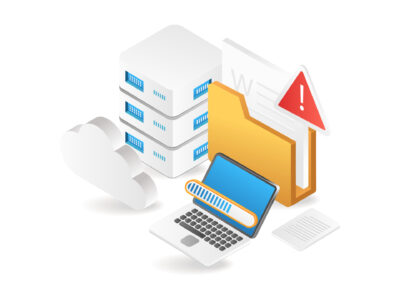Table of Contents
Rising Risks & Costs of Data Breaches
Data is at the heart of modern business operations, powering decisions, personalizing customer experiences, and driving innovation. However, with great data comes great responsibility. The rise of digital transactions and cloud computing has amplified risks associated with data breaches, identity theft, and cyberattacks. Malicious entities increasingly target personal data due to its high value, while inadequate data handling practices exacerbate vulnerabilities. New research from IBM and the Ponemon Institute, drawing from the experiences of 604 organizations and 3,556 cybersecurity and business leaders affected by breaches, reveals that the global average cost of a data breach in 2024 reached USD 4.88 million, a 10% increase from 2023 and the highest recorded to date.
With increasing regulations, such as the California Consumer Privacy Act (CCPA) and the General Data Protection Regulation (GDPR), organizations are now compelled to adopt robust data privacy management software (DPMS). Gartner forecasts that global spending on information security will reach USD 212 billion in 2025, marking a 15.1% increase from the estimated USD 183.9 billion in 2024. Additionally, by 2027, it is predicted that 17% of cyberattacks will involve generative AI technologies, highlighting the growing complexity of cybersecurity threats. In this high-stakes environment, data privacy management software has emerged as an indispensable tool, empowering organizations to mitigate risks, streamline compliance, and build consumer confidence.
Advanced Capabilities of Data Privacy Management Software
Modern data privacy management software has evolved into a sophisticated ecosystem that goes far beyond compliance checklists. With advanced functionalities tailored for the rapidly shifting regulatory and threat environments, these tools ensure robust data protection and operational efficiency. Below are some of the key capabilities that make DPMS indispensable for organization
- Dynamic Consent and Data Subject Access Requests (DSARs): Managing user consent is critical for compliance with regulations that demand transparency in data processing. DPMS tracks, manages, and updates consent while automating DSAR workflows to process access, correction, or deletion requests efficiently. This reduces administrative overhead and enhances customer trust.
- Real-Time Risk Assessment and Incident Response: Advanced DPMS tools leverage predictive analytics to assess vulnerabilities and potential breaches. They integrate incident response mechanisms, enabling organizations to swiftly notify affected individuals and regulatory authorities during breaches. This minimizes legal and reputational fallout.
- Privacy Impact Assessments and Global Compliance Support: DPMS simplifies conducting Privacy Impact Assessments, embedding privacy protections from project inception. The software also ensures seamless alignment with evolving global regulations, helping organizations operate confidently across jurisdictions.
- AI-Driven Data Mapping and Classification: AI-powered algorithms in DPMS automate the discovery and classification of sensitive data across structured and unstructured repositories. By pinpointing the exact location of personal or critical data, organizations can proactively address vulnerabilities and ensure compliance with global regulations like GDPR and CCPA.
Key Technical Features of Data Privacy Management Software
DPMS employs cutting-edge technologies to maintain compliance, secure sensitive data, and mitigate risks effectively. Below are the technical methodologies and features commonly used:
- Encryption and Access Controls: Encryption ensures sensitive data remains unreadable even if accessed by unauthorized entities. In tandem, role-based access controls (RBAC) restrict data access based on user roles, safeguarding information from misuse within the organization.
- Audit Trails and Anomaly Detection: Comprehensive logging and monitoring capabilities provide audit trails for every data access or modification. Combined with real-time anomaly detection systems, DPMS enables organizations to promptly identify and mitigate unauthorized activities.
- Incident Response Mechanisms: Integrated incident response features enable swift breach management, from detecting unauthorized access to notifying stakeholders and regulatory authorities, ensuring compliance and damage control.
Top 11 Data Privacy Management Software
1. Privacy Tools
Privacy Tools is an advanced privacy management platform designed to help organizations comply with global data protection regulations such as GDPR, CCPA, and Brazil’s LGPD. Leveraging AI and blockchain technologies, it offers comprehensive solutions for consent management, data subject request automation, and data mapping. The platform also provides features for cookie management, website scanning, and data discovery, ensuring robust data governance. Additionally, Privacy Tools supports Environmental, Social, and Governance (ESG) assessments, Governance, Risk, and Compliance (GRC) management, and policy administration, making it a versatile tool for modern data privacy needs.
- AI-Driven Data Mapping: Automatically identifies and classifies sensitive data across various systems, facilitating efficient data management and compliance.
- Consent Management: Streamlines the collection, tracking, and management of user consents, ensuring adherence to diverse regulatory requirements.
- Data Subject Access Request (DSAR) Automation: Simplifies the process of handling data subject requests, reducing response times and administrative burdens.
- Cookie Management: Enables organizations to manage website cookies effectively, ensuring transparency and compliance with user preferences.
- ESG and GRC Support: Assists in conducting ESG assessments and managing governance, risk, and compliance activities, promoting ethical and responsible data practices.
- Policy Administration: Facilitates the creation, management, and dissemination of data privacy policies, ensuring consistent implementation across the organization.
2. DataGrail
DataGrail is a leading privacy management platform designed to help organizations build trust and mitigate risks by automating data mapping, Data Subject Request (DSR) management, and privacy assessments. It offers continuous system detection and responsible data discovery, enabling businesses to comply with evolving privacy regulations such as GDPR, CCPA, and CPRA. Companies like Overstock, Salesforce, New Balance, and Instacart utilize DataGrail to streamline their privacy programs and maintain compliance with global data protection laws.
- Automated Data Mapping: Utilizes AI-driven algorithms to identify and classify sensitive data across various systems, providing a comprehensive view of data flows within the organization.
- DSR Management: Automates the processing of data subject requests, including access, deletion, and opt-out requests, reducing manual effort and ensuring timely compliance.
- Consent Management: Facilitates the collection, tracking, and management of user consents, ensuring adherence to diverse regulatory requirements and fostering customer trust.
- Live Data Map: Offers real-time visualization of data assets, enabling organizations to monitor data movements and detect shadow IT, thereby minimizing risk exposure.
- Risk Monitor: Provides proactive risk assessments by auto-populating DPIAs and AI assessments, allowing organizations to address potential risks promptly.
- Integration Network: Supports over 2,000 integrations with various applications and systems, including Salesforce, Okta, Shopify, and Zendesk, ensuring seamless data privacy management across the organization’s tech stack.
3. MineOS
MineOS is another recognized data privacy and security platform that adopts a people-centric approach to data governance, creating a unified source of truth for organizational data. Recognized as one of the highest-rated platform in its category on G2, MineOS enables rapid deployment of privacy programs, offering automated Data Subject Request (DSR) handling, comprehensive data mapping, and consent management. Its unique Email Navigator technology ensures thorough data source discovery in a single scan, while continuous data classification maintains control over the data ecosystem.
- Automated DSR Handling: Streamlines the processing of data subject requests, enhancing efficiency and compliance with privacy regulations.
- Comprehensive Data Mapping: Provides a detailed visualization of data flows within the organization, facilitating effective data governance.
- Consent Management: Manages user consents across various platforms, ensuring adherence to global data protection laws.
- Email Navigator Technology: Offers unique data discovery capabilities, enabling complete data source identification in a single scan.
- Continuous Data Classification: Maintains up-to-date data categorization, allowing for proactive data management and risk mitigation.
- Rapid Deployment: Enables organizations to implement privacy programs swiftly, reducing the time to compliance from months to days.
4. TrustArc
TrustArc is a comprehensive privacy management platform that enables organizations to streamline and automate their data privacy programs. By integrating privacy frameworks, insights, and operational tools, TrustArc offers a unified solution for end-to-end privacy management, helping businesses navigate the complexities of global data protection regulations. Its robust features are designed to ensure compliance, mitigate risks, and build customer trust in an increasingly digital world.
- PrivacyCentral: A centralized hub that automates privacy tasks, aligns with various laws and regulations, and provides real-time updates to streamline compliance efforts.
- Data Mapping & Risk Manager: Offers full visibility and control over data flows, enabling organizations to accurately identify and mitigate privacy risks through automated data mapping and risk assessments.
- Assessment Manager: Facilitates the automation and scoring of privacy assessments, such as Privacy Impact Assessments (PIAs) and AI risk evaluations, enhancing the efficiency of compliance workflows.
- Cookie Consent Manager: Simplifies the management of cookie consent across global jurisdictions, ensuring compliance with regulations like GDPR and CCPA, and providing a secure, personalized browsing experience for users.
- Individual Rights Manager: Automates the entire data subject request (DSR) fulfillment process, allowing organizations to efficiently handle requests across mobile, web, and app environments in accordance with jurisdictional requirements.
- Nymity Research: Provides instant access to the latest privacy regulations, legal summaries, and operational templates, keeping organizations informed and compliant with evolving data protection laws.
5. IBM Security Guardium
IBM Security Guardium is designed to protect sensitive information across diverse environments, including databases, data warehouses, big data platforms, and cloud infrastructures. It offers real-time data activity monitoring, advanced analytics, and automated compliance reporting to help organizations safeguard their critical assets. By providing centralized visibility and control, Guardium enables businesses to detect and respond to potential threats promptly, ensuring data integrity and compliance with various regulatory standards. Its scalable architecture supports both on-premises and cloud deployments, making it adaptable to evolving data security needs.
- Data Discovery and Classification: Automatically identifies and categorizes sensitive data across structured and unstructured sources, facilitating effective data governance and protection strategies.
- Real-Time Activity Monitoring: Continuously monitors data access and usage patterns to detect unauthorized activities and potential security breaches, enabling immediate response to threats.
- Vulnerability Assessment: Evaluates database configurations and identifies vulnerabilities, providing actionable insights to mitigate risks and enhance security postures.
- Automated Compliance Reporting: Streamlines the generation of compliance reports for various regulations such as GDPR, HIPAA, and PCI DSS, reducing the burden of manual reporting and ensuring adherence to legal requirements.
- Data Masking and Encryption: Protects sensitive information through dynamic data masking and robust encryption techniques, ensuring data privacy both at rest and in transit.
- Integration with Security Ecosystems: Seamlessly integrates with other security tools and platforms, enhancing overall security operations and providing a unified approach to data protection.
6. OneTrust
OneTrust Privacy Automation is a comprehensive platform enabling organizations to manage and automate privacy workflows seamlessly. It supports privacy-by-design principles and ensures compliance with global data protection regulations like GDPR, CCPA, and CPRA. By centralizing privacy management, OneTrust empowers security, marketing, and privacy teams to collaborate effectively. The platform integrates advanced automation tools for data mapping, privacy impact assessments, and third-party risk management. It’s designed to foster trust and transparency through proactive privacy practices.
- PIA & DPIA Automation: Streamlines Privacy Impact Assessments (PIAs) and Data Protection Impact Assessments (DPIAs) with guided workflows and automated risk scoring.
- Data Mapping Automation: Automatically identifies, classifies, and visualizes data flows across systems, ensuring accurate compliance with data governance policies.
- Privacy Rights Automation: Simplifies the processing of data subject access requests (DSARs), reducing response times and ensuring regulatory adherence.
- Privacy Incident Management: Provides real-time incident response tools for managing data breaches and minimizing legal and reputational risks.
- Third-Party Risk Management: Assesses and monitors vendor compliance with privacy standards, mitigating risks in the supply chain.
- Privacy Notice Management: Automates the creation, distribution, and updates of privacy policies and notices across platforms.
7. PrivacyEngine
PrivacyEngine is a comprehensive data privacy management platform designed to assist organizations in achieving and maintaining compliance with global privacy regulations such as GDPR, CCPA, and PDPL. The platform integrates advanced technologies like machine learning and artificial intelligence to automate compliance tasks, supporting global standards such as ISO 27001 and the NIS2 directive. PrivacyEngine serves various sectors, including retail, healthcare, financial services, and government, aiming to make privacy compliance straightforward, efficient, and accessible.
- DSAR Management: Simplifies the process of handling and responding to data subject requests, ensuring timely and accurate compliance.
- Data Breach Management: Automates the detection, reporting, and management of data breaches to minimize risk and ensure regulatory adherence.
- Data Protection Impact Assessments: Facilitates comprehensive risk assessments for data processing activities, helping organizations identify and mitigate potential privacy risks.
- Records of Processing Activities: Streamlines documentation and management of all processing activities, providing a clear overview of data flows within the organization.
- Advanced Risk Management: Offers tools for ongoing risk assessments and third-party evaluations to ensure continuous compliance and robust data protection strategies.
- Consultancy Services: Provides tailored consultancy services, including Data Protection Officer as a Service (DPOaaS), Data Protection Governance Assessments (DPGA), and Article 27 Representation, offering expert guidance and support to organizations.
8. Opsware Data
Opsware Data is a no-code data privacy platform designed to help organizations automate and scale their privacy programs. By integrating with over 100 platforms—including AWS, Microsoft Azure, Google Cloud, Salesforce, and Marketo—Opsware simplifies the management of personal data maps, records of processing activities, and data subject requests. Its AI and machine learning capabilities enable continuous discovery and classification of personal data across various systems, ensuring compliance with regulations like GDPR and CCPA.
- Automated Data Mapping: Utilizes AI/ML to continuously discover and classify personal data across systems, maintaining an up-to-date data inventory.
- Data Subject Request Automation: Streamlines the fulfillment of DSARs, significantly reducing response times and administrative burdens.
- Integration with Multiple Platforms: Offers pre-built connectors to seamlessly integrate with various cloud services and SaaS applications, enhancing data management capabilities.
- Privacy Impact Assessments: Provides tools to conduct PIAs, ensuring that new projects comply with privacy standards from the outset.
- Regulatory Compliance Monitoring: Keeps organizations informed about evolving privacy laws and updates compliance protocols accordingly.
- User-Friendly Interface: Features an intuitive dashboard that simplifies navigation and reduces the learning curve for users.
9. Imperva Data Security Fabric
Imperva Data Security Fabric is a comprehensive data security platform designed to protect sensitive information across diverse environments, including on-premises, cloud, and hybrid infrastructures. By integrating data discovery, classification, monitoring, and risk analytics, DSF enables organizations to effectively manage data privacy and compliance requirements. Its unified approach provides visibility and control over data assets, helping to mitigate risks associated with data breaches and unauthorized access. With support for a wide range of data repositories, Imperva DSF ensures robust protection tailored to the evolving needs of modern enterprises.
- Data Discovery and Classification: Automatically identifies and categorizes sensitive data across all data stores, facilitating effective data governance and compliance.
- Data Activity Monitoring: Provides continuous monitoring and auditing of data access and usage, enabling real-time detection of suspicious activities and potential threats.
- Risk Analytics: Utilizes advanced analytics to assess data risks, offering actionable insights to prioritize security measures and mitigate vulnerabilities.
- Unified Visibility and Control: Delivers a centralized platform for managing data security policies and controls across diverse environments, ensuring consistent protection.
- Ecosystem Integration: Seamlessly integrates with existing security infrastructure and tools, enhancing overall security posture and operational efficiency.
- Compliance Support: Assists organizations in meeting regulatory requirements by providing comprehensive audit trails, reporting capabilities, and policy enforcement mechanisms.
10. Privitar Data Privacy Platform
The Privitar Data Privacy Platform is designed to help organizations safely utilize sensitive data for analytics and machine learning. By implementing advanced privacy-preserving techniques, it enables businesses to extract valuable insights while ensuring compliance with data protection regulations. The platform integrates seamlessly with existing data architectures, supporting both on-premises and cloud environments, and offers centralized policy management to enforce consistent privacy controls across the organization. This approach allows companies to maximize data utility without compromising individual privacy.
- Data De-Identification: Utilizes techniques such as masking, tokenization, and generalization to protect sensitive information while maintaining data utility.
- Protected Data Domains (PDDs): Organizes data releases into specific domains to manage and control the risk and linkability of data, ensuring that datasets retain referential integrity within their domain but are not directly linkable to data in other domains.
- Watermarking: Inserts digital watermarks into datasets to trace and control the distribution of sensitive information, aiding in the detection of unauthorized data sharing.
- Centralized Policy Management: Provides an intuitive interface for creating and managing privacy policies, enabling consistent application of data protection measures across various data processing environments.
- Scalability: Designed to handle large-scale data environments, supporting both batch and streaming data processing to meet the demands of modern data architectures.
11. Osano
Osano is a comprehensive data privacy platform designed to assist organizations in building, managing, and scaling their privacy programs. By offering user-friendly solutions for consent management, data subject rights, assessments, and vendor risk management, Osano enables businesses to maintain compliance with global data privacy regulations, foster customer trust, and uphold ethical data practices. The platform’s automation capabilities streamline complex compliance tasks, reducing manual errors and allowing privacy professionals to focus on strategic priorities. Notably, Osano supports compliance with over 50 international data privacy laws, including GDPR, CCPA/CPRA, and LGPD, and is backed by a unique “No Fines. No Penalties.” pledge, providing organizations with confidence in their compliance efforts.
- Cookie Consent Management: Simplifies consent management by providing compliant banner templates and automating the discovery of website tags like cookies, scripts, and iframes, ensuring adherence to regulations in over 50 countries.
- Data Subject Rights Management: Streamlines and automates the Data Subject Access Request workflow, facilitating efficient handling of data access, correction, or deletion requests, thereby reducing administrative overhead and enhancing customer experience.
- Assessments: Offers tools to efficiently manage assessment workflows using custom or pre-built templates, aiding in conducting regular impact assessments and maintaining compliance with evolving data privacy laws.
- Unified Consent & Preference Hub: Provides an intuitive, centralized system for managing consents and preferences across various touchpoints, simplifying compliance and enhancing privacy by building trust through transparency into and control over personal data processing.
- Data Mapping: Automates and visualizes data store discovery and classification, offering a visual, interactive map of your data to define and understand relationships between different systems and applications, and identify data stores and vendors missing assessments.
- Vendor Privacy Risk Management: Ensures that customer data is handled appropriately by providing tools to assess and manage vendor risk, thereby safeguarding data throughout the supply chain and maintaining compliance with data privacy regulations.
Best Practices for Implementing DPMS
To maximize the potential of DPMS, organizations should adopt the following practices:
- Regular Employee Training: Ensure staff are well-versed in privacy policies and tools to foster a culture of compliance.
- Continuous Monitoring: Use real-time monitoring to identify and neutralize threats promptly.
- Integration with IT Ecosystem: Seamlessly incorporate DPMS with existing IT infrastructure, ensuring optimal functionality without disrupting operations.
- Periodic Assessments: Conduct regular evaluations to refine privacy strategies and maintain alignment with emerging regulations.
Future Outlook on Data Privacy
With global cybersecurity investments on the rise and generative AI reshaping threat dynamics, organizations that adopt robust privacy management solutions will not only protect their data but also enhance their competitive edge. By implementing best practices and embracing the latest advancements, businesses can stay ahead in a world where data privacy is both a legal mandate and a critical differentiator.
The 2025 Global Digital Trust Insights survey by PwC, published this September, shows that organizations are most worried about risks they are least ready to address. Security executives express the least readiness to handle the top four cyber threats they find most alarming: cloud-related vulnerabilities (42%), hack-and-leak campaigns (38%), breaches via third parties (35%), and attacks targeting connected products (33%). Despite evident threats and preparedness gaps, organizations are proactively responding. Over three-quarters (77%) anticipate increasing their cyber budgets in 2025, with nearly half (48%) of business leaders prioritizing data protection and trust as their foremost cyber investment.
Cyber resilience reduces operational risks, enhances brand reputation, and enables organizations to confidently steer through digital transformation. By adopting comprehensive privacy management solutions, businesses not only protect sensitive information but also position themselves as trusted custodians of data. As privacy regulations evolve and consumer expectations rise, the organizations that prioritize ethical data handling will lead the way in building a secure digital future.



















Good insights..keep them coming
As a privacy enthusiast, I appreciate the detailed explanation of technical features like encryption, access controls, and anomaly detection. It’s clear that DPMS is becoming a must-have for businesses operating in global markets.
Making a compelling case for prioritizing data privacy.. being a tech insider, I’ve seen firsthand how these tools can simplify compliance and reduce risks.
Data Privacy is paramount to any critical process, irrespective of the industry. Majority of the organisations are focussing on building a Risk & Awareness culture amongst its employees and Data Privacy is pivotal to the complex processes being managed out of specialized GCCs operating out of APAC & EMEA regions. Every industry is prone to attacks from hackers around the globe who leave no opportunity to steal sensitive confidential data which puts any business at a risk, hence the relevance of maintaining Data Privacy at all the times.